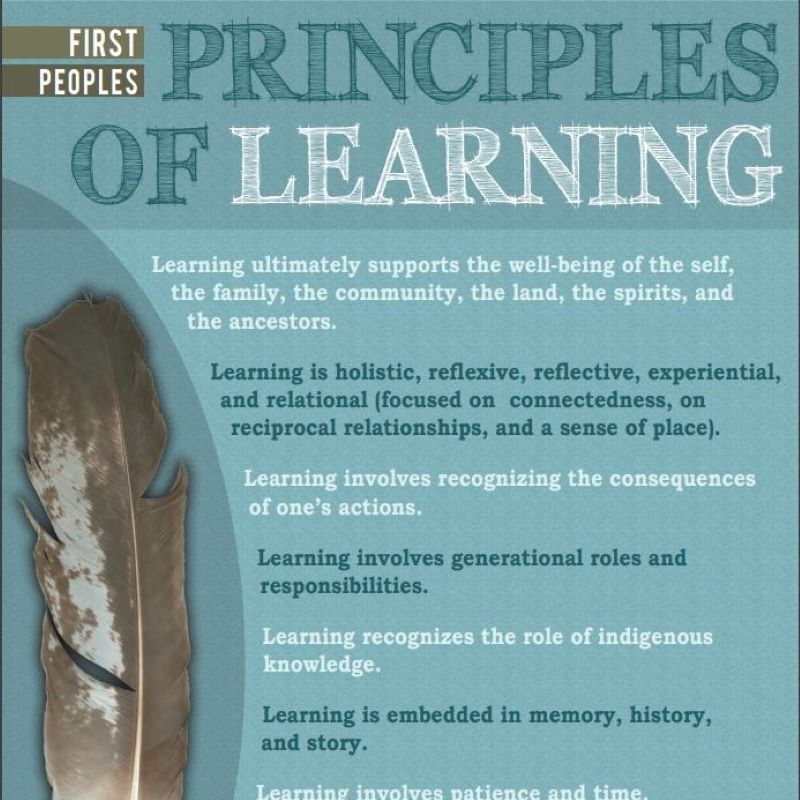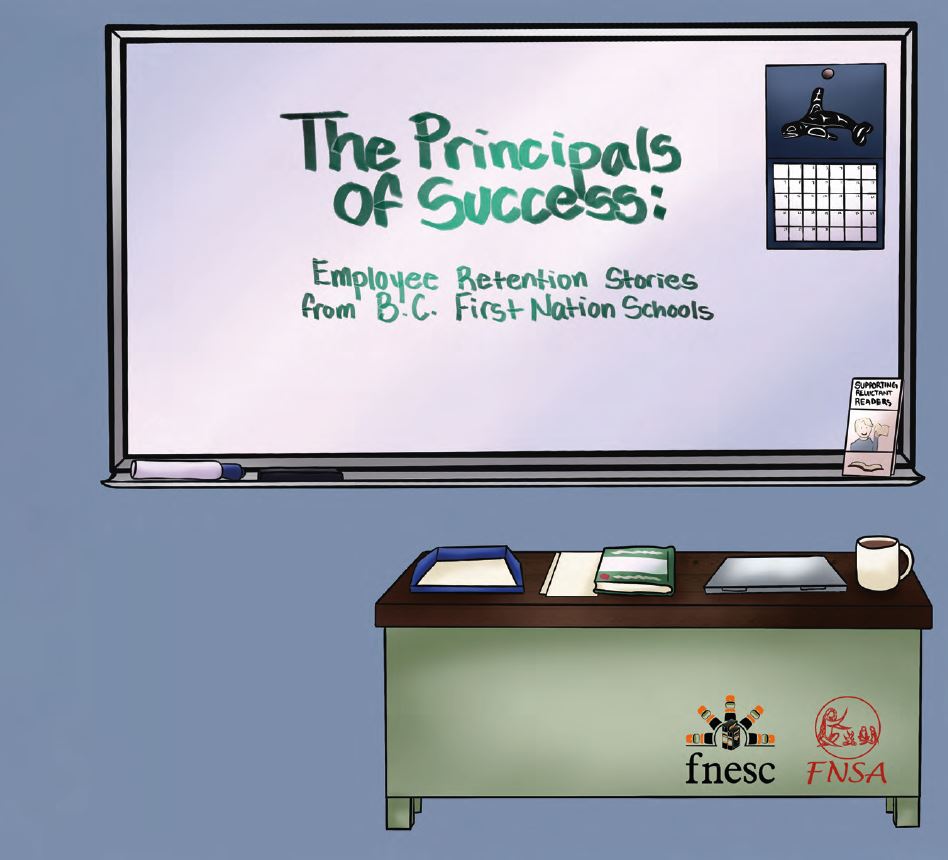First Peoples Principles of Learning Poster

This poster describes a set of learning principles specific to First Peoples. The First Peoples Principles of Learning were articulated by Indigenous Elders, scholars and knowledge keepers to guide the development of the curriculum and teaching of the the English First Peoples course created by the BC Ministry of Education and First Nations Education Steering Committee in 2006/2007.
1.13MB
The Principles are as follows:
- Learning ultimately supports the well-being of the self, the family, the community, the land, the spirits, and the ancestors.
- Learning is holistic, reflexive, reflective, experiential, and relational (focused on connectedness, on reciprocal relationships, and a sense of place).
- Learning involves recognizing the consequences of one‘s actions.
- Learning involves generational roles and responsibilities.
- Learning recognizes the role of Indigenous knowledge.
- Learning is embedded in memory, history, and story.
- Learning involves patience and time.
- Learning requires exploration of one‘s identity.
- Learning involves recognizing that some knowledge is sacred and only shared with permission and/or in certain situations
They represent an attempt to identify common elements in the varied teaching and learning approaches that prevail within particular First Nations societies. It must be recognized that they do not capture the full reality of the approach used in any single First Peoples’ society.
More Resources
- The Principals of Success: Employee Retention Stories from BC First Nation Schools (2023)Hailey Jang2023-06-01T13:29:08-07:00
- A Handbook for First Nation School Governing Authorities (2020)Jennifer White2022-01-11T16:01:40-08:00






